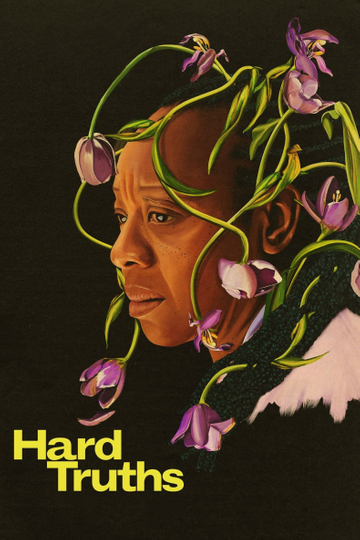Season 1 Episodes
1. The Daily Struggles of a Pakistani Used Car Dealer
The number of people who've chosen Japan to be their new home reached the highest in history in 2019, exceeding 2.8 million. They bring new color to the country, yet many foreigners struggle to fit in. This program offers a glimpse into their lives and the hardships they face in Japanese society. More than 600 dealers from around Asia and the Middle East gather at a huge used vehicle auction. They are foreign exporters who came to live in Japan, hunting for the best deal and trying to make it big in their adoptive country. A devout Pakistani Muslim, Mian Mohammad Sadiq is one of them. We follow him in his daily struggles as he tries to compromise between his beliefs and the local values. We also look at the life of a young American woman who's studying to become a sake specialist.
2. Little India in Big Tokyo
"Little India" in Tokyo's Edogawa Ward is a community of about 4,000 Indian nationals first established about 20 years ago. However, they have little connection with Japanese locals and are seen mostly as outsiders. Puranik Yogendra, on whom this episode focuses, is working to change this by actively taking part in neighborhood association projects and teaching his fellow Indians local customs and habits. Also a ward council member, he now aims to set up a Japanese school for Indian children. We also visit a young Nepalese manager of an izakaya, a Japanese-style bar restaurant.
3. A Helping Hand for Foreign Women in Kyoto
Neighborhood relations, childcare, PTA: in Japan, issues that involve women are plenty and part of everyday routine. But for women from abroad, they can be obstacles to adapting to life in Japan. Nina Hakkarainen, a Kyoto-based Finnish woman, founded an organization offering support to non-Japanese women. As we tag along in her work, we look at the struggles of foreign women to become active members of society. We also visit the kawaii side of Harajuku with a charismatic shop clerk from France.
4. A Hot Meal for Every Child
Japan is the world's third largest economy yet its poverty rate is high, with one out of 7 children living below the threshold. Having witnessed this reality, Ghana-native Tony Justice founded a soup kitchen offering free meals to kids. But Japan's strict regulations and procedures are getting in the way of his project's success. Join us as we follow the daily struggles of this man driven by his motherland's altruistic culture. We also hop into the cab of an Austrian taxi driver in Tokyo.
5. Support for Foreign Disabled and Elderly
The city of Toyota in Aichi Prefecture is home to some 18,000 foreigners, mainly Latin Americans of Japanese descent. We follow one of them: Keiko Uezu from Peru, who works as a caregiver assisting non-Japanese elderly and disabled people in their daily lives. Fluent in Japanese, Spanish and Portuguese, she's an indispensable source of support and reassurance for those struggling with the language barrier. We also visit a hard-working Polish salesclerk at an eyewear store in Fukuoka Prefecture.
6. A Budding Farmer Dreams of Peanuts
Struggling with depopulation and a dwindling farming industry, Akitakata City in Hiroshima Prefecture has been encouraging foreigners to settle down in the area. Among them is Leonel David Maia from East Timor. Training under a veteran farmer, he started growing peanuts that now rank among the region's best-selling produce. We take a close look at Leo's efforts to reinvigorate local agriculture. We also meet an Italian craftsman eagerly promoting the use of traditional pizza brick ovens in Japan.
7. Under the Coronavirus Outbreak
The coronavirus is shaking the world, and Japan is no exception with over 10,000 infected cases nationwide. The country is in a state of emergency - people are asked to stay home and a lot of businesses are closed. Most non-Japanese are unable to go back to their home country and many suddenly lose their jobs. On this episode of Where We Call Home, we touch base with people we followed in past episodes, look at how the lives of foreigners are affected and provide information to help them.
8. Working Under the Outbreak
Like in the rest of the world, the coronavirus is disrupting life in Japan. As businesses shift to telecommuting or temporarily closed, foreigners working in Japan are also affected. Join us as we contact some of the people we previously met on Workpedia Japan! Seen through the eyes of an aspiring sake brewer from the US, a colorful French store clerk, a Tokyo-based Austrian taxi driver and the Nepalese manager of an izakaya, we get an inside look at how the pandemic impacts workplaces in Japan.
9. Chinese Entrepreneurs Fight for Survival
Chinese nationals make up about 30% of foreigners in Japan. Among the younger generations of Chinese living here, starting a business has become a trend in recent years. But with the coronavirus outbreak, many risk having to close up shop. We look at 2 such entrepreneurs: Xiaohan, who opened up a prep school for Chinese students wishing to enter Japanese universities, and Yuemei, the owner of an "izakaya" in Tokyo - businesswomen who won't give up on their dreams so easily!
10. Struggles for Recovery in the Restaurant Industry
A month after the state of emergency was lifted in Japan, we focus on 3 foreigners in the restaurant industry fighting for financial recovery. To save her Szechuan eatery, Aya Wu from China started takeout and delivery services. Ricardo Komori left his home in Portugal to learn authentic Japanese cuisine but the pandemic took away his chance at employment in a Kyoto restaurant. Running a tea shop in Tokyo, French-native Florent Weugue's business too has been impacted by the coronavirus.
11. Entertainers Under the Pandemic
The entertainment business in Japan has been dealt a heavy blow by the coronavirus pandemic. Join us as we look at the lives of 3 foreigners working in the industry fighting to survive the crisis: Fiona Graham - an Australian who's been working as a geisha under the artist name of Sayuki for 15 years, Iran-born Edi who manages a talent agency regrouping around 2,000 non-Japanese entertainers, and a dancer from the United States, Ice, who runs his own dance school for children.
12. Tourism's Fight to Endure the Crisis
The coronavirus outbreak has taken a heavy toll on businesses that cater to tourists visiting Japan from overseas. From the English-born organizer of countryside tours in Oita Prefecture to a caterer from Thailand working in Hokkaido Prefecture's picturesque Niseko, along with the American proprietor of an inn in a storied Nagano Prefecture hot-spring resort, this episode offers a glimpse into the struggles of foreigners in the tourism industry as they try to withstand the impact of the pandemic.
13. Charmed by the Beauty and Flavor of Noto
This episode takes us to the Noto Peninsula in Ishikawa Prefecture where we visit an inn run by Australian-born Benjamin Flatt and his Japanese wife Chikako. The secret to the inn's popularity is the couple's tasty cuisine made possible by Ben's culinary know-how accumulated while working at an Italian eatery back in Oz, and the relations he and Chikako established over the years with local farmers and fishermen in Noto. We also meet Betty, a food package designer from Taiwan living near Tokyo.
14. A University Fostering Exchange and Diversity
On this episode, we follow Mali-born Oussouby Sacko, who has been the president of Kyoto Seika University for the past 2 years. He's been devoting himself to fostering interchanges between Japanese students and those from abroad who've been increasing in numbers thanks to Sacko's efforts. However, the pandemic is making it harder for him to pursue his goal of a university open to diversity. We also meet Kosim Bokiev from Tajikistan, who works in the wholesale of fruit and vegetables in Tokyo.
15. Keeping the Faith in Chinatown
Yokohama is home to Japan's biggest Chinatown. The neighborhood has survived war and disaster over the course of its long history. Now it's known as a culinary hotspot, attracting about 20 million visitors every year. But the coronavirus has ground business to a halt. This episode follows 3 people with deep roots to the area's storied dining industry, and looks at how they are overcoming the crisis. We also meet Vietnam-born Doan who is working to bring new development to Tokyo's Shibuya Ward.
16. For the Love of Sweets and Family
On this episode: a taste of sweetness with traditional confections, or "wagashi," prepared at a 200-year-old shop in Kumamoto City. Training under the 7th generation owner is his son-in-law, Mexican-born Saul Garcia Torres. Join us as we spend time with Saul on his journey toward becoming a master at preparing Japanese confections and creating new sugary sensations powered by his love of sweets and family. We also follow Amelia from the UK in her work to protect wild bears in Nagano Prefecture.
17. Together We Can Make It Through!
This episode focuses on Vietnam-born Do Van Tuan, chairman of the Sendai Vietnamese Association. As the coronavirus pandemic continues to rage on, he decided to roll up his sleeves and come to the aid of other Vietnamese in the area who lost their jobs due to the outbreak. His endeavor has snowballed into a volunteer project in which the local Japanese also take part. In addition, we meet US-native Kristen Shinozaki who works alongside her husband, the owner and chef of a Tokyo eel restaurant.
18. A Cozy Place for Everyone
One of the issues many foreigners face when they come to live in Japan involves looking for an apartment. Intimidated by the language barrier, property owners often refuse to rent to non-Japanese for fear of not being able to communicate should a problem occurs. On this episode we follow Dong Xiaoliang, the director of a firm that acts as a bridge between landlords and foreigners, helping non-Japanese find a place to live. We also meet Cameroonian Wouassi Vincent Jr., a drum teacher in Tokyo.
19. Uniting People Through Manga
On this episode, we meet manga creator René Hoshino from Cameroon who's been living in Japan since childhood after his mother remarried to a Japanese national. Growing up, he has often been the target of prejudice and discrimination, but using his artistic skills, he turned this harsh experience into a best-selling manga that fosters understanding as it touches on serious matters with a little bit of humor. We also drop by a café in Tokyo where Korean-born Woo Youngju works as head barista.
20. Coriander Farmers in Pursuit of Happiness
On this episode, we visit a coriander farm in Bando, Ibaraki Prefecture run by Thai-native Satapon Sukhanonchanapa and his wife Sysaath Seginthisack from Laos. In 10 years, what started as a hobby has grown into a highly profitable business. They now make deliveries all the way to Tokyo and its neighboring areas. But success is not without its share of hardships. Join us to find out more. We also meet with Greek-born Anastasios Pappas, a former weightlifter turned manager of a barbell factory in Tokyo.
21. Keeping Wood Weaving Alive
The former village of Oguchi in Ishikawa Prefecture was home to a 400-year-old wood weaving technique using Japanese cypress. Today, with the region's ongoing depopulation, the craft is threatened to disappear. We follow Australian Susan May who has been learning the technique under master artisan Katsuki Hisayo. Susan is attempting to weave a traditional woven hat for which the fabrication method has been lost. We also meet Bulgarian-native Ilko Allexandroff, a unique photographer living in Kobe.
22. Rural Reinvigoration on Video
This episode takes us to the rural community of Kito in Tokushima Prefecture. While its population of around 1,000 is on the decline, a newcomer, Tyler Walkey from the US, is helping to breathe new life to the area. A talented video content creator, he uses his skills and a variety of methods from drones to time-lapse shooting to promote the Kito region by filming its nature and its people. We also meet Chinese-born Chen Bowen who works at a store selling materials for making lacquerware.
23. Chris's Little Nigerian Shop
On this episode, we meet Nigerian-native Chris Andrews, who runs a small shop in Saitama Prefecture's Koshigaya City. Open 365 days a year, Chris's business is a gathering spot and a source of moral support for the local Nigerian community. However, with the coronavirus pandemic, he struggles to keep his shop afloat. Join us as we follow Chris and the people who have come to his aid in his fight for survival. We also visit Bangladeshi Rashel Sarkar, who makes prosthetic legs at a company in Osaka Prefecture.
24. American Taste, Japanese Apples
On this episode, we visit American-born Janie Ikegami who grows apples in Nagano Prefecture. Wishing to recreate the taste she loved growing up in her Texas home, Janie also began using her apples to make sauce and butter, which were unfamiliar to Japanese at first, but are now a huge hit. Yet Janie doesn't stop there; she's ready to take on a tasty new challenge. Join us to find out more. Later on, we drop by another Nagano location: a storied hotel where Russian-native Lyubov Zaozerova works.















































